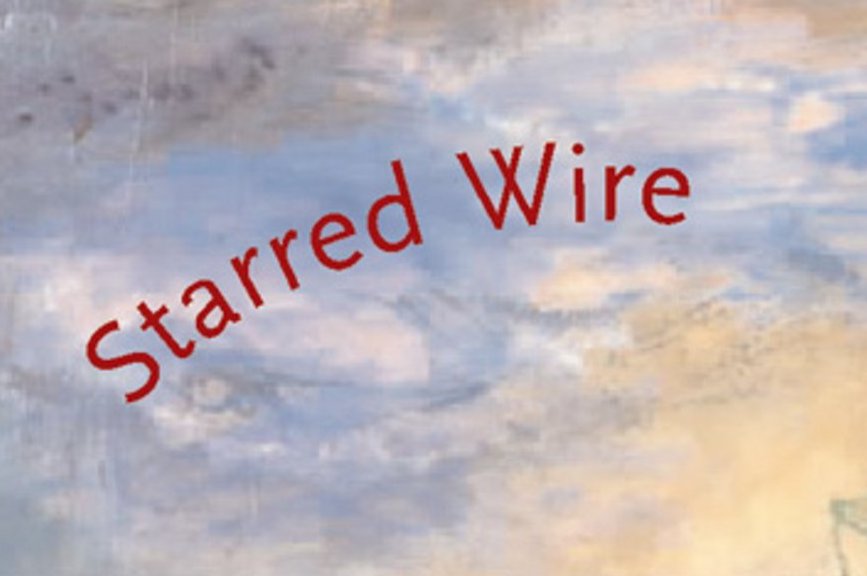Starred Wire
Ange Mlinko
Coffee House Press, $15 (paper)
In her second collection, Starred Wire, poet Ange Mlinko dreams only of America. But this America is not one a casual observer would immediately recognize, because Mlinko’s America is, like John Ashbery’s in The Tennis Court Oath, made extremely strange. It’s full of odd juxtapositions and queer semblances—summer seems like a long illness, yellow leaves double the light, California feels surprisingly European—so even the most mundane scene has an undercurrent of strangeness: “The sun was shining in its fashion, smeared across the clouds.” Starred Wire is a celebration of the everyday uncanny, owing some of its quirkiness to the diction and exacting attentiveness of Marianne Moore and some of its syntax to (again) Ashbery. Though the phrase gets bandied about too often to mean much anymore, she is truly a third- generation New York School writer, not simply because she’s Brooklyn-based and breathing the same air Frank O’Hara and James Schuyler did, but because she takes their social and ekphrastic subject matter and presents it with the formal trappings of Ashbery and Barbara Guest. Unlike some of her compeers, though, Mlinko retains an essential singularity. When one of her speakers seems to present a forthright meditation on recognizable experience, the diction implodes, swerving from MTV to Pierre Reverdy, the clouds overhead receiving off-kilter qualifiers like “radiantly placental.” This keeps everything in slippery, tricky territory, where an occasional nonsensical riff will erupt for what seems to be nothing more than the sheer joy of its expression: “The printer got a splinter, the spit of instruments became a river / and the adolescent got over Dostoevsky / so the little cloud wept into sheep.” This will make some readers swoon from giddiness as others tear their hair out in frustration. Luckily for everyone, this well-edited collection eases us into Mlinko’s exotic, exponentially weirder terrain, revealing its bizzaro America slowly and carefully, with just enough of the recognizable world to keep pulling us deeper into the dream.








